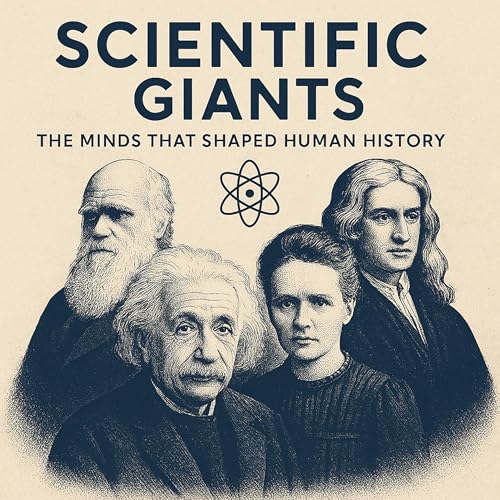
Louis Pasteur
Artikel konnten nicht hinzugefügt werden
Der Titel konnte nicht zum Warenkorb hinzugefügt werden.
Der Titel konnte nicht zum Merkzettel hinzugefügt werden.
„Von Wunschzettel entfernen“ fehlgeschlagen.
„Podcast folgen“ fehlgeschlagen
„Podcast nicht mehr folgen“ fehlgeschlagen
-
Gesprochen von:
-
Von:
Über diesen Titel
Today we unlock a laboratory door in Paris and a faint sweetness greets us—a broth of sugar and yeast, a tang of wine gone wrong, the metallic breath of steam. On one bench a row of glass vessels stands like a choir, each with a long, swan‑curved neck. On another, flasks cradle broths that were boiled and then left to cool under arches of glass that invite air but trap dust. A small flame licks at a burner; a hand adjusts it until the liquid shivers and then calms. The hand belongs to a man with a large brow, a steady gaze, and a patience that can be stern. He lifts a flask, tips it, watches nothing grow, and smiles because nothing is sometimes the most eloquent answer the world can give. The man is Louis Pasteur. Over four decades he will show that asymmetry in crystals reflects an asymmetry in life; that fermentation is the work of living agents rather than a spontaneous rot; that dust, not air itself, carries the seeds of decay; that heating can make food safe without erasing its character; that specific microbes cause specific diseases; that beating those microbes sometimes requires teaching the body in advance—vaccination—and sometimes requires heat, cleanliness, and nerve. His experiments—plain and theatrical, careful and public—will pull medicine out of charm and into rule. He will save wine, silk, sheep, and children, and he will make the laboratory a courtroom where microbes confess.
By Selenius Media




